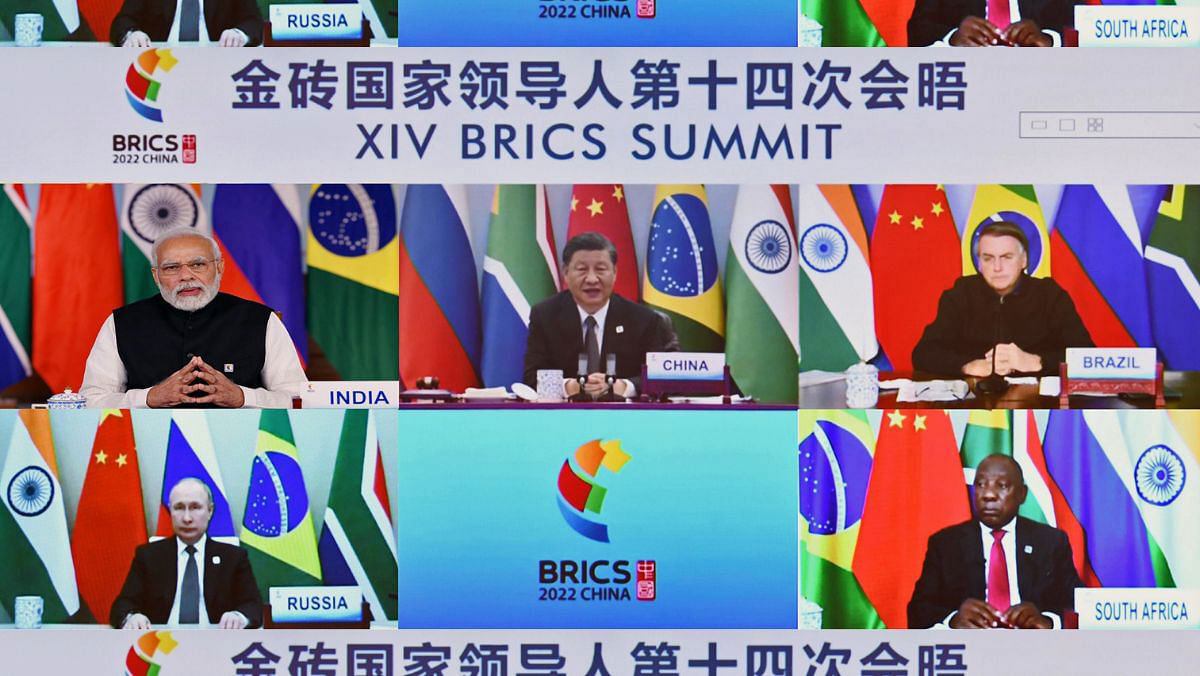An adhesive force

The recently concluded BRICS summit reflected an effort by all the members to reach a common ground despite overwhelming differences. For India and China, the multilateral engagement at the leadership level offered another crucial platform to hold dialogue, as the Indian PM and Chinese Premier have not met bilaterally after the 2020 LAC confrontation. Irrespective of lacking consensus over critical global issues, the positive exchange between the two Asian power centres is a relieving factor. Bound together by "a similar approach to global governance", the five countries — Brazil, India, Russia, China and South Africa — came out with some concrete outcomes during the meeting while complex global issues remained unresolved. Notably, countries interact with each other in bilateral and multilateral arrangements on two bases — national interests and moral political standpoints. As reality stands today, concrete national interests clearly dominate over other things. While the emphasis on New Development Bank has been the most highlighted cooperation endeavour of the 14th summit, the countries also finalized a satellite agreement and opening up of Covid Research and Development centre in South Africa. Certainly, the relevance of the BRICS summit extends far beyond these particular cooperative measures. As a grouping, BRICS neither crudely focusses on regionalism nor does it longer focus on the similarity of economic status of the members. It carefully selects governance patterns as a uniting force. There is a very thin line between the differences and similarities among the member nations. For instance, contrary to Russia and China, India has a very different stand on the Ukraine war and the Afghanistan crisis. But, at the same time, India and China continue to buy energy fuels from Russia, despite global pressures. While China joined Russia in condemning the 'Cold War mentality' of Western nations and opposing unilateral sanctions, India too abstained from validating sanction against Russia despite attracting adverse reactions from its western allies. Of course, this has been done considering India's national interests but it also reflects the point that Russia, China and India are bound together in a loop that is hard to break. Interestingly, on the issue of sanctions, Brazil and South Africa too had essentially a similar stand. Both the similarities and differences among BRICS nations are visible but it is difficult to draw a line between the two. It is, however, dubious whether these threads of similarities can result in wider consensus on critical issues like the Ukraine war and Afghanistan crisis. It is also uncertain whether the highly escalated tensions between China and India can be offset significantly through dialogue at this multilateral forum. On Afghanistan, the BRICS nations collectively urged the "Afghanistan authorities to achieve national reconciliation through dialogue and negotiation, and to establish a broad-based and inclusive and representative political structure". Also, evidently, the BRICS summit was an attempt by China to elicit support for Russia amid heavy sanctions and international pressure but it couldn't take India on board, which has been carefully balancing its ties with the West and Russia. Neither the oft-repeated talks of "national reconciliation through dialogue" nor the Chinese effort to garner support for Russia could lead to any meaningful outcome. Furthermore, it must be noted that in days to come, at the G-7 summit in Germany, India and South Africa will likely join western countries in their bid to impose still tighter sanctions on Russia — though the stand of both the countries may be milder. In this highly interconnected and globalized world, it is unviable to expect resolution of complex problems at any particular meeting. Resolution of conflicts is a long-drawn process and the key is to hold continuous dialogue. For multilateral organizations, the most important challenge is to stay there, and stay relevant. That's what BRICS is doing. Since its first summit in 2009, it has been there, and is continuing, despite all differences. Its relevance rests in the fact that it allows diverse opinions to stand together, as a bloc. Aside from deadlock on key global issues, the 14th BRICS summit, through its emphasis on tangible outcomes, has managed to retain its adhesiveness — keeping possibilities open from all sides.



